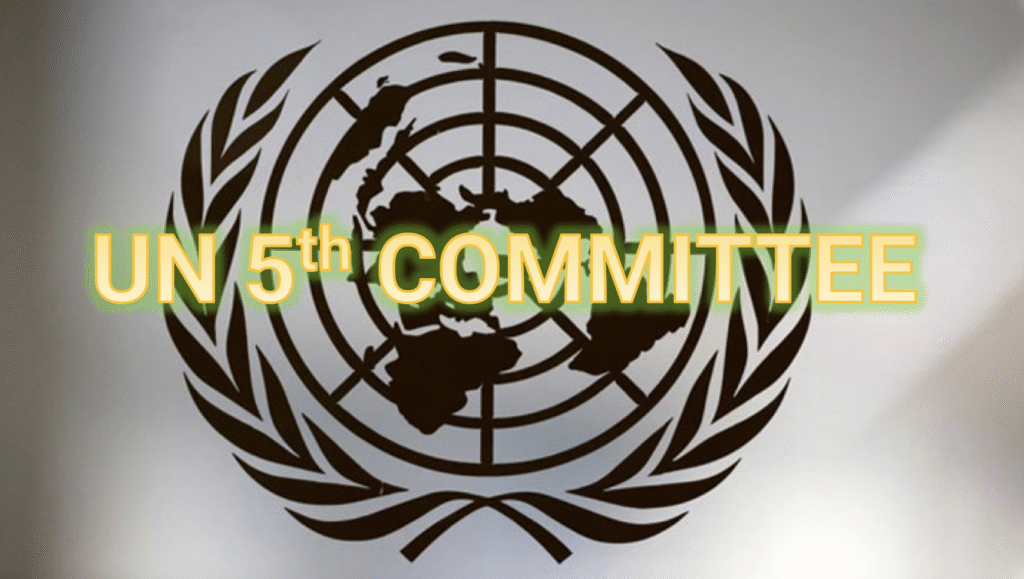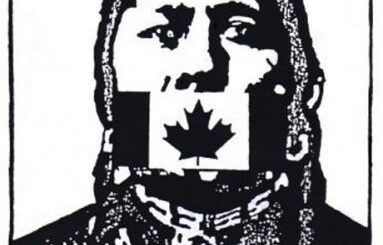Sri Lanka & the UN funding scandal: 5th Committee must answer on UNHRC’s illegal mandate

- A UN Constitutional Crisis
For over 15 years, Sri Lanka has been subjected to an unprecedented series of UNHRC resolutions simply for ending 30 years of terrorism. These resolutions have been based on reports and panels that were never mandated by the UN General Assembly (UNGA) or the Security Council (UNSC). The Darusman Panel, Petrie Report, and the OHCHR Investigation on Sri Lanka (OISL) formed the foundation for these interventions.
These documents ignored due process and were commissioned unilaterally by a former UN Secretary General and leaked. They became the legal and political basis for what is now called the Sri Lanka Accountability Project (SLAP) — including proposals for a hybrid court that directly undermine Sri Lanka’s judiciary, sovereignty, and constitutional authority.
The question is simple: who funded these unmandated, illegal mechanisms, often against repeated objections from the Government of Sri Lanka, and why has the 5th Committee — the body charged with overseeing UN funding — remained silent?
Was UN resources used to finance mechanisms outside the UN’s own Charter, without transparency, and without accountability?
And if the 5th Committee was not involved, who else provided the resources for these operations, and under whose authority?
Can outsiders legitimately fund reports or panels that carry the seal of the UN or UNHRC?
- The 5th Committee: Accomplice or Ignorant Bystander?
The 5th Committee of the UN is the guardian of the UN’s finances, with the authority to approve funding for all panels, reports, and investigative mechanisms. Yet in the case of Sri Lanka, the Committee faces a damning dilemma:
- If the 5th Committee approved funds for the Darusman Panel, Petrie Report, and OISL, it did so without any legal mandate, violating the UN Charter and its own rules.
- If the 5th Committee did not approve the funding, then external donors, foreign governments, or private entities have infiltrated the UN system to finance politically motivated reports under the UN’s seal. Who are these hidden financiers?
Either scenario is unacceptable.
The 5th Committee was either complicit in funding illegality, or it failed in its duty to prevent the weaponization of a UNGA subsidiary body for political ends.
The 5th Committee oversees all UN funding, yet the Darusman Panel, Petrie Report, and OISL — all forming the basis of the UNHRC’s Sri Lanka resolutions — were financed and implemented without any clear mandate from the UNGA or UNSC.
Were they complicit in funding these unmandated operations, or were they unaware and negligent, allowing UN resources to be used for mechanisms that overstepped UN authority and violated the Charter?
For 16 years, these unmandated operations have continued unchecked — under the very eyes of the UNSG, the UNGA, the UNSC, and the UN’s internal oversight bodies. How could the UN’s financial guardian remain silent while successive High Commissioners of Human Rights turned human rights into a political weapon against a sovereign state?
The 5th Committee must now answer whether it was a willing accomplice or an ignorant bystander to the most serious breach of UN Charter authority in decades.
This must be regarded as a major internal scandal.
- The UNHRC Overreach
The UNHRC was established in 2006 under GA Resolution 60/251 as a subsidiary body of the General Assembly, mandated to promote and protect human rights. It was never authorized to act as a quasi-judicial body, nor to establish hybrid courts or evidence-gathering projects.
Yet, 4–5 powerful member states have successfully used the UNHRC to:
- Draft resolutions based entirely on unmandated reports.
- Establish OHCHR’s Sri Lanka unitwith quasi-prosecutorial powers.
- Pushed the Sri Lanka Accountability Project, creating a permanent external oversight mechanism.
- Undermined Sri Lanka’s sovereignty, domestic judiciary, and constitutional authority.
- For 16 years the UN’s internal oversight mechanisms have either ignored these illegalities or been themselves accomplices.
This is a clear usurpation of powers reserved only for the UNGA and UNSC.
Despite repeated objections from Sri Lanka, the UN’s own internal oversight mechanisms have either ignored these illegalities or become accomplices to them. This represents a clear usurpation of powers that belong solely to the UN General Assembly and Security Council.
Here lies the scandal:
- Who authorized or funded these illegal mechanisms?
- Was the 5th Committee — the UN’s financial watchdog — complicit in approving resources outside the UN Charter, or was it bypassed altogether?
If outsiders funded these panels and reports under the UN seal, then the credibility of the entire UN system stands compromised.
- The Hybrid Court: Trojan Horse of Power
“Sri Lanka Accountability Projects” hybrid court proposals are a direct outgrowth of these unmandated reports -what began illegally, continues illegally cannot be legitimized and a precedent created.
- These proposals override Sri Lanka’s sovereign legal system under the false guise of “accountability.”
- They ignore the fact that the LTTE — a globally proscribed terrorist group whose leadership was annihilated — continues only through overseas networks abusing “human rights” as a political cover for separatism – a fate their LTTE masters could not achieve by weapon.
- The precedent is chilling: any Global South nation that defeats terrorism could be dragged before externally imposed “courts,” with a handful of UNHRC member states together with successive High Commissioners complicit in weaponizing human rights.
This is not justice.
It is a Trojan Horse of power politics masquerading as law and “human rights”
- Direct Questions that Demand Answers
This is not a matter of opinion but of institutional legality.
The UN hierarchy cannot evade responsibility any longer.
The UN hierarchy must answer:
- Authority:
- Who authorized and funded the Darusman Panel, the Petrie Report, and the OISL, given that neither the UNGA nor the UNSC ever sanctioned them?
- 5th Committee’s Role:
- Did the 5th Committee knowingly approve funding for bodies created without mandate — and if so, under what legal basis? Can the 5th Committee lawfully release funding absent UNGA or UNSC mandate?
- Secret Financing:
- If funds did not originate from the 5th Committee, which states, NGOs, or private actors secretly financed these operations while exploiting the UN’s name and seal?
- Resolutions on Illegality:
- How can 15 years of UNHRC resolutions rest upon reports that were never authorized, never adopted, and in the case of Darusman, not even meant to be published?
- Usurpation of Powers:
- Why are the UNGA and UNSC permitting their Charter powers to be usurped by a handful of nations within the UNHRC?
- Institutional Accountability:
- Will the UN commit to a forensic review — with full transparency — into how unmandated, politically motivated interventions have been allowed to continue against Sri Lanka for 16 years without corrective action from its own oversight mechanisms?
Until these questions are answered, every resolution, report, and hybrid court proposal against Sri Lanka remains tainted by illegality.
- A Call to Action
This is no longer only about Sri Lanka. It is about the integrity of the UN system itself.
- Member States, particularly those in the Global South, must ask:
- If Sri Lanka can be punished for defeating terrorism, who is next?
- Missions in Geneva and New York must demand immediate accountability and transparencyfrom the 5th Committee, UNSG, and UNHRC as well as the High Commissioner.
- Silence is no longer acceptable; the world cannot allow UN mechanisms to be hijacked for political agendas.
The Sri Lanka Accountability Project is not a question of justice — it is a test case for a new, dangerous UN precedent that must be stopped immediately & all damage done so far to sovereign Sri Lanka reversed. Resolutions since 2009 have weaponized human rights, abused funding, created illegal panels, and gone beyond human rights processes to undermine a sovereign state.
The UN must answer, the UN General Assembly members must not stay silent, the Non-Aligned Movement must not stay silent, the African Union, Latin American states must not remain silent and the key members of the UN Security Council must immediately take action — we demand answers – NOW.
Sri Lanka’s Case for Closure
Sri Lanka stands as the only nation in modern history to have militarily defeated one of the world’s most ruthless terrorist groups, the LTTE — a group that pioneered suicide bombings, child soldiers, and assassinations. Since May 2009, not a single bomb or suicide mission has taken place on Sri Lankan soil by LTTE.
During the final phase of hostilities, Sri Lanka’s national army carried out the world’s largest humanitarian rescue operation, saving nearly 300,000 civilians trapped by the LTTE, while simultaneously fighting one of the most brutal non-state armed groups. Instead of global applause, Sri Lanka’s forces were vilified & demonized, imposed travel bans by nations that are happy to allow LTTE fronts to operate on its soil inspite of continuing to keep LTTE and its sovereignty targeted through manipulated UN mechanisms.
Sri Lanka also went beyond battlefield victory:
- Child Soldiers& former LTTE cadres–
Every surrendered child soldier was rehabilitated, given education, vocational training, and reintegrated back to society.
- Humanitarian Relief–
Massive post-conflict efforts were undertaken domestically without waiting for international prescriptions. The armed forces were involved in demining, renovating places of religious worship, schools and built homes for displaced civilians.
Yet Sri Lanka has been denied closure. People want to move on. None of the fictitious narratives being promoted by NGOs & hired media exist on the ground. The many tourists who visit Sri Lanka will vouch for this.
But the greater scandal is not only that 4–5 powerful nations manipulated the UN Secretariat — it is that over 40 other UNHRC member states stood by in silence, allowing their own voting rights and the authority of the General Assembly and Security Council to be usurped. By endorsing these biased resolutions, HRC members became complicit in legitimizing illegal reports, undermining the UN system itself. When they knew that the core group of 4–5 nations were pushing unreasonably illegal resolutions, they should have united to table counter-resolutions, because the dangerous precedents created against Sri Lanka will inevitably backfire on them in future situations.
It is now time not only to demand accountability from the UN system but also to restore Sri Lanka’s rightful place in history — as a nation that defeated terrorism and protected its people, while showing the world that sovereignty, humanitarianism, and justice can co-exist.
Shenali D Waduge







